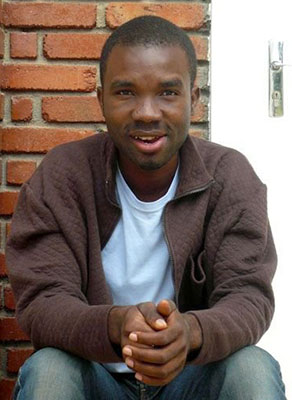ACTIVIST BLAMED FOR OWN MURDER

Eric Ohena Lembembe
Cameroon’s ambassador to Geneva, Anatole Nkou, has told the United Nations Human Rights Council that a murdered gay rights activist was to blame for his own death.
According to Human Rights Watch, Nkou claimed that Eric Ohena Lembembe was killed because of his “personal life”.
Nkou said: “He might have committed crimes, and he was the victim of a settling of scores which was all too quickly attributed to the Cameroon government.”
The ambassador made these comments despite the authorities’ failure to identify any suspects two months after Lembembe’s death, and despite the high rate of homophobic and transphobic violence in Cameroon.
Concerns that Lembembe’s murder could be linked to his LGBTI rights activism were dismissed by Nkou at the Human Rights Council as a “fantasy”.
Human Rights Watch argues that Nkou’s conclusion that Lembembe’s “personal life” caused his murder reinforces the message that LGBTI people can be killed with impunity in Cameroon.
Lembembe, the executive director of Cameroonian Foundation for AIDS (CAMFAIDS), was an outspoken LGBTI activist and journalist in Cameroon.
His mutilated body was found in his home in Yaoundé on July 15. Two weeks earlier, he had made a public statement condemning the state’s inaction following several attacks on human rights defenders, including those protecting the rights of LGBTI people.
Several of his friends were briefly arrested and interrogated, including about their sexual behaviour. Since then, activists in Yaoundé say, investigations appear to have stalled.
“The comments by the official state representative toward the late Eric Lembembe, who is no longer with us to defend himself against such vitriol, represent a new low by Cameroon’s government,” said Neela Ghoshal, senior researcher on LGBT rights at Human Rights Watch.
“Cameroon should be focused on improving its human rights record before the UN, instead of blaming the victims and asserting it has no obligation to protect sexual and gender minorities from violence and discrimination.”
At the Human Rights Council Cameroon rejected recommendations that would ensure people’s basic rights not to be killed, raped, or assaulted because of their sexual orientation or gender identity.
These included a recommendation from Uruguay to tackle harassment and violence based on sexual orientation, and a recommendation from Germany to protect LGBTI people from violence.
“In rejecting these common-sense recommendations, Cameroon has failed to uphold the basic principle that every person has the right to life and to security,” Ghoshal said. “It has distanced itself from a growing consensus, voiced by the African Commission on Human and Peoples’ Rights and the UN Human Rights Council, that discrimination and violence based on sexual orientation and gender identity are never acceptable.”
In a more encouraging move, Cameroon accepted Belgium’s recommendation to investigate police violence against people on the basis of their sexual orientation.
In response to UN member states’ arguments that Cameroon’s anti-homosexuality law violates its own constitution, as well as international law, Cameroon said that the law targets people who have sex in public, a claim that is patently false, said Human Rights Watch.
Since the beginning of 2013, at least six people have been convicted for homosexuality; not a single one was actually caught having sex.
Leave a Reply